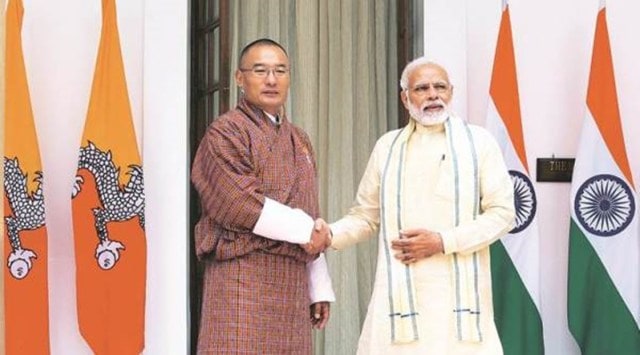INDIA AND China must not allow their politics to interfere in the internal affairs of the neighbourhood, former Prime Minister of Bhutan Tshering Tobgay said on Sunday, adding that some countries in the neighbourhood and their politicians play the China card to balance and achieve certain political ends within the country.
Tobgay, who was Prime Minister of Bhutan from 2013 to 2018, said India can and must do more to bring both SAARC and BIMSTEC to realise their full potential.

In a conversation with former Foreign Secretary Shyam Saran at an event organised by the Centre for Policy Research, Tobgay was candid: “Some countries and some politicians play the China card. The very terminology China card indicates that these countries are naturally more closer to India. And therefore, the China card is taken almost to balance or to achieve certain political ends within the country.”
Story continues below this ad
“India and China must not allow their politics to interfere in the internal affairs of the neighbourhood. As long as there is interference in the internal affairs in their neighbouring countries, I do believe that these countries will find it exceedingly difficult to grow. China is going to grow… India is growing… the question is for the neighbourhood, those countries that are sandwiched now, we will grow and for that, all countries that have to behave, including the individual countries,” Tobgay said.
Recalling Prime Minister Narendra Modi’s invitation to leaders from SAARC countries for the swearing-in ceremony in 2014 and BIMSTEC countries for the oath-taking ceremony in 2019, Tobgay said, “Modi’s gesture of goodwill was aimed at bringing together and strengthening all the countries in the neighbourhood. That message of uniting and fulfilling SAARC’s potential has somehow not been given the urgency and importance it deserves. We must do more…. Like SAARC, BIMSTEC too has a long way to go. Given India’s leadership and as the biggest, richest and most powerful country in the region, surely India can and must do more to bring both organizations SAARC and BIMSTEC to realize their full potential.”
On India’s role in the neighbourhood, he said, “I do believe that unfortunately, many times, people who live in — what is perceived to be smaller countries have a chip on our shoulders. We tend to feel like a little brother. And we don’t want to feel that big brother is in the neighbourhood. We tend to feel insecure. And I think that insecurity is not good for friendship. That’s my view. In Bhutan, we don’t have these insecurities and as a result, we have benefited. We are growing. We are becoming even stronger.”
In the neighbourhood, there are countries with 40 million to 200 million population, he said, “They are giants in their own right. I believe they can work on equal terms with India.”
Story continues below this ad
“So, yes, there are some insecurities. On the one hand, it could be natural. On the other hand, it just could be the politicians, the political leaders fueling insecurities in their people to meet their political ends,” he said.
“When I meet people abroad, Indians and Pakistanis get along very well abroad. But when I come back to Bhutan, and look at the region, there seems to be almost differences that cannot be reconciled. I think the leadership in all these countries, including the leadership in India, must do more to ensure that there is more trust and cooperation”.
Tobgay was in conversation with Saran as part of a lecture series by CPR on the theme, India and the World, which is a lecture series bringing together distinguished speakers who have a long and deep engagement with India.








